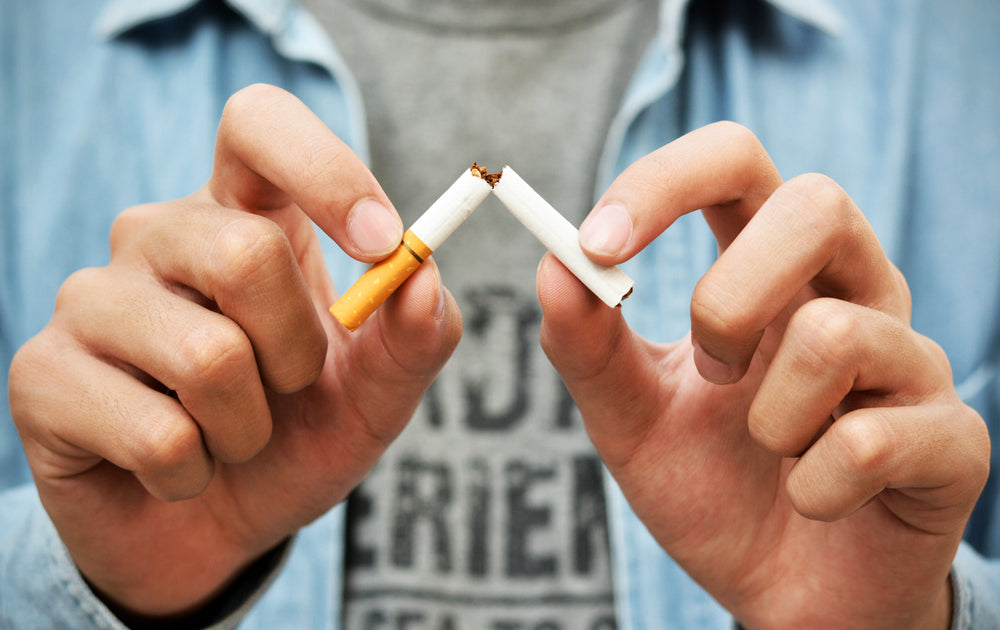At this point in time, most people living in developed nations know that smoking is bad for you. However, smoking is also very addictive, so even with the understanding that smoking is harmful isn't always enough.
But if you are looking for one more reason to toss the cigarettes out of your life, how about this—research has shown that smoking can make your obstructive sleep apnea much worse.
Studies Show Negative Impact Of Smoking On Sleep Apnea
Interestingly, a 2014 study has indicated that not only does smoking make obstructive sleep apnea worse, but it is also linked to aggravated smoking addiction to untreated sleep apnea.
In this study, the researchers went over how smoking irritates the upper airway, and how the frequent sleep disturbances can lead to nonrestorative sleep. This lack of restful sleep can leave individuals to struggle with waking up in the morning, daytime fatigue, and stress, which is then self-medicated with smoking.
The researchers did mention that further investigation was needed to prove these claims, but it is still an interesting line of research.
Another study publishing in 2012 explored whether the amount a person smoked impacted their predisposition to developing obstructive sleep apnea. In the study, the researchers took a group of former smokers, light smokers, moderate smokers, and heavy smokers.
Unsurprisingly, heavy smokers turned out to have the highest level of sleep-disordered breathing—snoring, etc. However, there was no difference in the sleep-disordered breathing between mild and moderate smokers, which can indicate that there is no "safe" amount that you can smoke.
If you do smoke and are concerned that you may also suffer from sleep apnea, you can always use the ApneaMed home sleep apnea test from the comfort of your home.
How Smoking Impacts Your Sleep Apnea
For those who currently smoke or who are working on quitting, you may be wondering how exactly smoking impacts and exacerbates your sleep apnea. Below are some of the key ways that smoking negatively impacts those already suffering from sleep apnea.
- Induce Inflammation In Upper Airway - Smoking cigarettes and other tobacco products can leave your upper airway inflamed, as the combined ingredients are burned and inhaled by the smoker. The body responded to what it perceives as a harmful invasion by having the bronchial tubes in your airway swell up and produce more mucus. But, this response leaves you with narrowed airways, which can trigger difficulty breathing.
- Can Trigger Comorbid Respiratory Illnesses - Sleep apnea is often found with other comorbid illnesses, and when you smoke, one of those comorbid issues is often a respiratory illness. Problems like chronic obstructive pulmonary disease (COPD), emphysema, chronic bronchitis, asthma, and lung cancer, can all be compounded with sleep apnea, making breathing during your sleep more difficult.
- Increase in Snoring While Smoking - As smoking irritates your airway, it is not surprising that with this restricted breathing that you would snore more. Since snoring is a common component of sleep apnea, smoking—and the increase in snoring—can lead to more sleep disruptions as your breathing is interrupted.
- Less Restful Sleep - Not only does smoking make breathing at night more difficult—which will naturally lead to less restful sleep—but the nicotine in cigarettes and other similar products also can disrupt the sleep cycle. As you sleep, your body experiences a short withdrawal from nicotine, causing short, nocturnal awakenings. While you may not be aware of your awakening, it will still leave you less rested.
If you aren't sure that you have sleep apnea, but you would like to be tested without paying for an expensive sleep study, you can always opt for a home sleep apnea test.
These tests are convenient, fast, accurate, and affordable, with board-certified sleep physicians reviewing the sleep data so that you can receive an accurate diagnosis. That way, you can tackle all your health issues head-on, from stopping smoking to addressing your sleep apnea.

